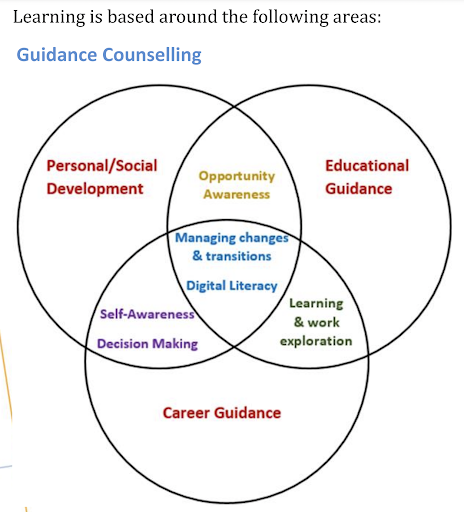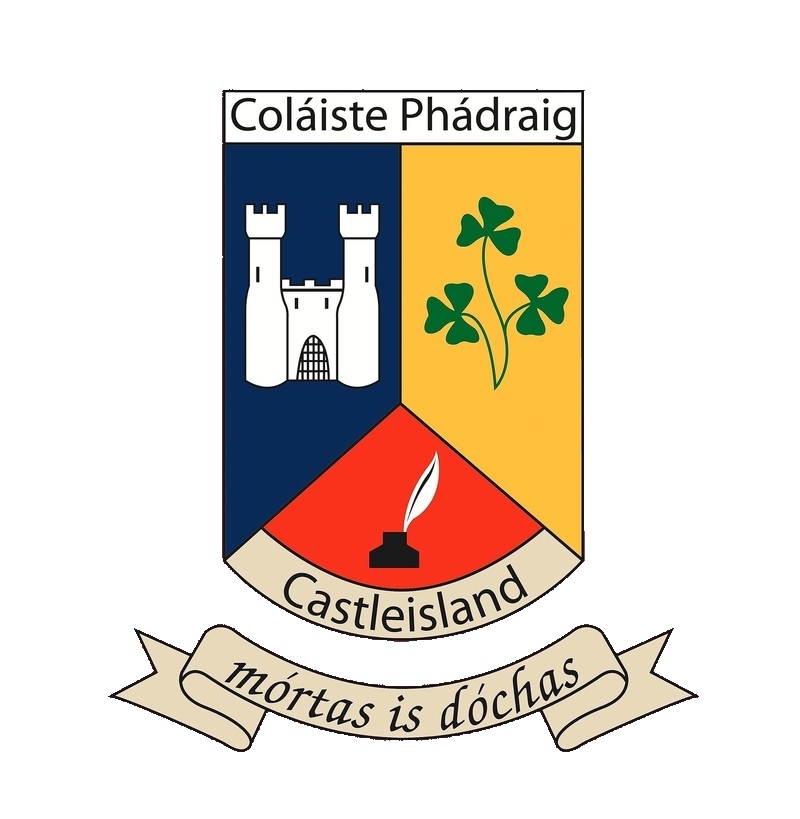Guidance
What is Guidance?
Guidance provides a range of learning experiences in a developmental sequence that assist students in developing self-management skills which lead to effective choices and decisions about their lives. It encompasses the three separate, but interlinked, areas of Personal and Social Development, Educational Guidance and Career Guidance. In St. Patrick’s Secondary School we have a dedicated Guidance teacher
What will I learn in Guidance?
Learning is based around the following areas:

Guidance for senior cycle includes the following areas of learning:
- Understanding and developing yourself (Intelligence, Personality, Interests, Skills and Values)
- Exploring Life, Learning and Work (World of Work and World of Education)
- Developing and Managing your Career.
- Wellbeing
Will Guidance have anything to do with other subjects I will be studying in Senior Cycle?
There are transferable skills which students practice in guidance class that are relevant to support academic success in other subjects. These include:
- Organisational Skills
- Communication Skills
- Teamwork
- ICT Skills
How will Guidance be useful to me?
- Structured classes help students plan and achieve their goals, and how to organise themselves and do things in the best possible way for them, not just in relation to study and schoolwork, but also in relation to everyday life.
- Students get comprehensive advice on careers, courses, and jobs that enable them to make appropriate and informed choices and understand better what options there are for when they leave school.
- Students build a personal profile through an online programme that allows them to reflect and gain perspective of their strengths and weaknesses, interests and personality to inform their future choices.
- Students are guided on how to deal with psychological problems which can badly impact their studies. Through these sessions, the students will be able to develop certain problem-solving skills which to an extent help them deal with particular issues surrounding their lives.
- Students learn how to live in peace and harmony with others in the school community. Thereby, they also learn to appreciate other people in their class.
- It helps to bridge the gap between students and the school administration as they may channel their emotions through their school work and identify issues that may need support.
- It allows students to talk to teachers about various experiences that make them uncomfortable. They can openly share problems that they cannot share with others perhaps.
- Talks related to alcohol, drugs, personal feelings, or any kind of abuse, can be openly discussed.
